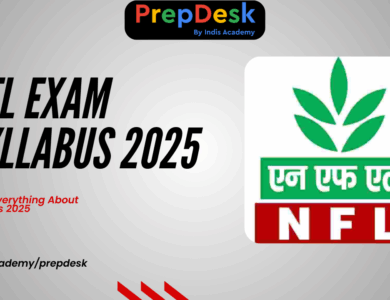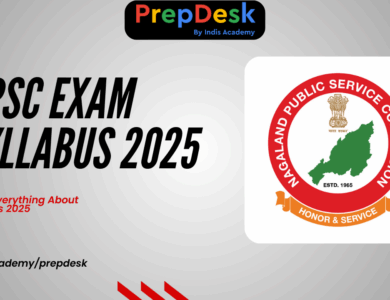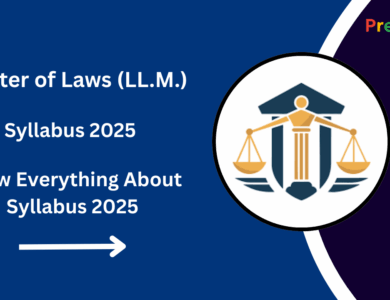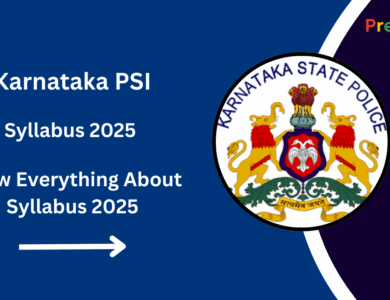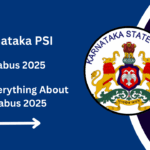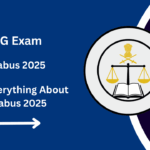Full Stack Developer Course Syllabus 2025 | HTML, JS, React, Node & DevOps
Explore the Full Stack Developer Course Syllabus 2025 covering HTML, CSS, JavaScript, React, Node.js, MongoDB, REST APIs, Git, Docker & DevOps. Get PDF download, recommended books, project modules & job-ready skills.
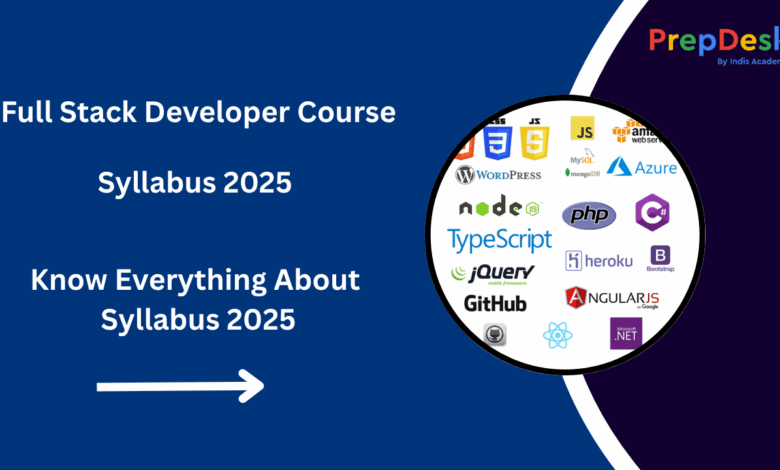
If you dream of becoming a proficient web developer who can handle both front-end and back-end technologies, then enrolling in a Full Stack Developer course is your first step. In this guide, we provide the complete Full Stack Developer Course syllabus, including semester-wise subjects, topic descriptions, marks (if applicable), recommended books, specialization options, and preparation strategies.
A Full Stack Developer is a tech professional proficient in both front-end (client-side) and back-end (server-side) technologies. The course is designed to make you industry-ready by teaching you web development languages, databases, server architecture, APIs, version control, and deployment.
Whether you’re pursuing this course via a degree (BCA, B.Tech, MCA, etc.), bootcamp, or online certification, the core syllabus largely remains similar. Here, we provide a comprehensive syllabus commonly followed across top training institutes and universities in India.
Course Overview
| Component | Details |
|---|---|
| Course Name | Full Stack Developer Course |
| Level | Undergraduate / Certificate / Diploma |
| Duration | 6 months to 3 years |
| Mode | Online / Offline / Hybrid |
| Assessment | Projects, Assignments, MCQs, Viva |
| Eligibility | 10+2 or Graduation (for advanced courses) |
| Tools Covered | HTML, CSS, JavaScript, React, Node.js, MongoDB, Git, Docker |
| Certifications Offered | Full Stack Developer Certificate |
| Average Fees | ₹25,000 to ₹2,00,000 (based on level) |
| Placement Assistance | Yes (in most professional courses) |
Full Stack Developer Syllabus – Semester-wise Subjects & Topics
Semester-Wise Subject Breakdown (for Degree/Diploma Format)
| Semester | Core Subjects |
|---|---|
| Sem 1 | Programming Basics, Web Fundamentals, DBMS |
| Sem 2 | Front-end Development |
| Sem 3 | Back-end Development |
| Sem 4 | API Integration & Server Management |
| Sem 5 | DevOps & Deployment |
| Sem 6 | Capstone Project + Specialization |
Detailed Topic-Wise Full Stack Syllabus (with Descriptions)
Semester 1: Foundation & Basics
| Subject | Topics Covered | Description |
|---|---|---|
| Programming Fundamentals | C, Python, Java Basics | Covers logic building, syntax, OOP basics. |
| Web Technologies | HTML5, CSS3, Bootstrap | Foundation for front-end. Responsive layout, forms, tables. |
| Database Management System | SQL, MySQL, MongoDB (Intro) | Data models, queries, relational vs NoSQL. |
| Git & Version Control | Git, GitHub | Versioning, branching, merging. |
| Operating Systems (Optional) | Linux basics, CLI | Basic Linux commands and OS concepts. |
Semester 2: Front-End Development
| Subject | Topics Covered | Description |
|---|---|---|
| JavaScript Essentials | Data Types, Loops, Functions, DOM, Events | Core scripting logic. |
| Advanced JavaScript | ES6+, Promises, Async/Await, Closures | Advanced JavaScript features for performance. |
| React.js | JSX, Components, Props, State, Hooks, Router | Leading modern front-end framework. |
| UI Libraries | Tailwind, Bootstrap, Material UI | Pre-styled components for fast development. |
Semester 3: Back-End Development
| Subject | Topics Covered | Description |
|---|---|---|
| Node.js | Express.js, Middleware, Event Loop, NPM | JavaScript-based back-end runtime. |
| MongoDB | Collections, Documents, Aggregation | NoSQL database integration. |
| SQL Databases | PostgreSQL / MySQL Advanced Queries | Data normalization, joins, indexing. |
| Authentication | JWT, OAuth, Bcrypt | Secure login system for users. |
Semester 4: API & Server Architecture
| Subject | Topics Covered | Description |
|---|---|---|
| RESTful APIs | API routes, CRUD operations, Express routing | Create scalable APIs. |
| GraphQL (Optional) | Schema, Queries, Resolvers | Modern alternative to REST. |
| WebSockets | Socket.io for real-time apps | Used in chats, games, live feeds. |
| Cloud Basics | AWS / Azure / Firebase (Basics) | Hosting and serverless computing. |
Semester 5: DevOps & Deployment
| Subject | Topics Covered | Description |
|---|---|---|
| CI/CD Pipelines | Jenkins, GitHub Actions | Automate testing and deployment. |
| Docker | Containers, Images, Dockerfile | Portable application packaging. |
| Hosting & Deployment | Netlify, Vercel, Heroku, DigitalOcean | Deploy projects live. |
| Performance Tuning | Lazy Loading, Code Splitting, Bundle Optimization | Speed up loading and efficiency. |
Semester 6: Specialization + Capstone
| Subject | Topics Covered | Description |
|---|---|---|
| Capstone Project | Full-stack live project | Integrates all learning. Real-world app. |
| Optional Specialization | MERN, MEAN, Java Full Stack, Python Django Stack | Deep dive into one stack technology. |
| Interview Prep | DSA Basics, Resume, Mock Interviews | Get job-ready with coding rounds and HR prep. |
Full Stack Developer Syllabus PDF Download
You can download the detailed Full Stack Developer Syllabus PDF by clicking the button below:
Download Full Stack Developer Syllabus PDF
Recommended Books for Full Stack Developer Course
| Book Title | Author/Publisher |
|---|---|
| Eloquent JavaScript | Marijn Haverbeke |
| You Don’t Know JS (Series) | Kyle Simpson |
| Learning Web Design | Jennifer Robbins |
| Full Stack React Projects | Shama Hoque |
| Node.js Design Patterns | Mario Casciaro |
| MongoDB: The Definitive Guide | Kristina Chodorow |
| Git Pocket Guide | Richard E. Silverman |
| The Road to React | Robin Wieruch |
Preparation Tips for Full Stack Developer Course
- Start with Strong Fundamentals – Master HTML, CSS, and JavaScript before jumping into frameworks.
- Practice Projects Continuously – Apply every module by building real-time projects (To-do App, Blog, E-commerce site).
- Use GitHub to Showcase Code – Maintain repositories and push regularly.
- Join Open-Source or Hackathons – Contribute to GitHub open-source projects to gain exposure.
- Mock Interviews and Coding Practice – Use HackerRank, LeetCode, Codeforces for DSA and logic.
- Follow Roadmaps – Use developerroadmap.io to track and follow stack-wise learning paths.
Specializations in Full Stack Development
| Stack Specialization | Technologies Included |
|---|---|
| MERN Stack | MongoDB, Express.js, React.js, Node.js |
| MEAN Stack | MongoDB, Express.js, Angular, Node.js |
| LAMP Stack | Linux, Apache, MySQL, PHP |
| Java Full Stack | Core Java, Spring Boot, Hibernate, MySQL |
| Python Full Stack | Django / Flask, Python, PostgreSQL |
| Mobile App Stack | React Native / Flutter + Backend APIs |
Advantages of Becoming a Full Stack Developer
- High demand in startups and large tech firms
- Average salary ₹6–12 LPA in India
- Freelancing & Remote opportunities
- Capability to build products from scratch
- Quick career growth and transition into Product Management or Tech Lead
Key Skills You’ll Gain
- HTML5, CSS3, JavaScript (ES6+)
- Front-End Frameworks: React.js / Angular / Vue.js
- Backend Development: Node.js / Express / Django
- Database Management: MongoDB, MySQL, PostgreSQL
- DevOps Tools: Docker, GitHub Actions, AWS Basics
- API Integration: RESTful, GraphQL
- Project Management: Agile, Git, Scrum
Conclusion
A Full Stack Developer Course opens the door to a dynamic and rewarding tech career. Whether you’re just starting or switching fields, mastering this course enables you to become a versatile, job-ready developer.
With this comprehensive syllabus, you’ll be able to:
- Learn all critical technologies
- Build impressive portfolios
- Crack developer interviews
- Work on real-time web applications
FAQs – Full Stack Developer Course
Q1. What is the duration of the Full Stack Developer course?
Typically 6 months (certificate) to 3 years (degree).
Q2. Is it necessary to learn both front-end and back-end?
Yes, Full Stack means proficiency in both to build complete applications.
Q3. What is the average salary of a Full Stack Developer in India?
Between ₹6 LPA to ₹12 LPA based on experience.
Q4. Is React or Angular better for front-end?
React is more popular and easier to learn; choose based on project needs.
Q5. Can I pursue this course after 12th?
Yes, through diploma or certification programs.
